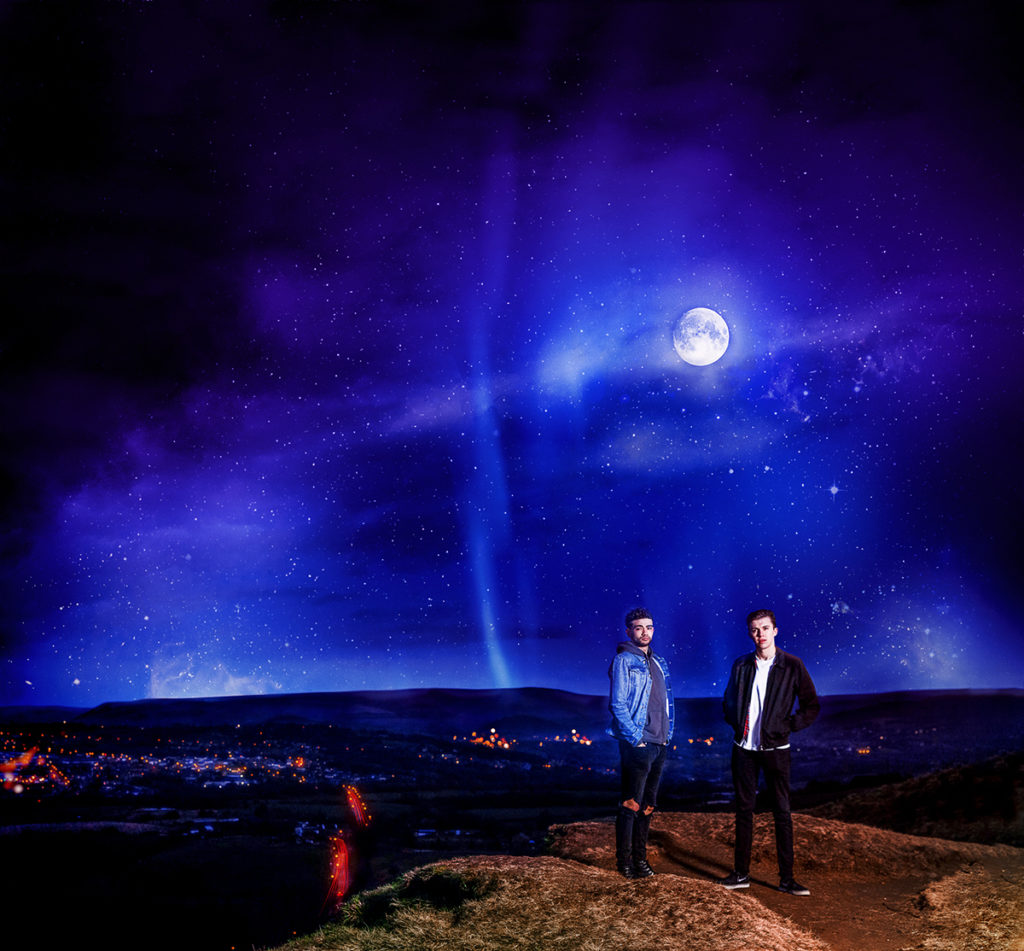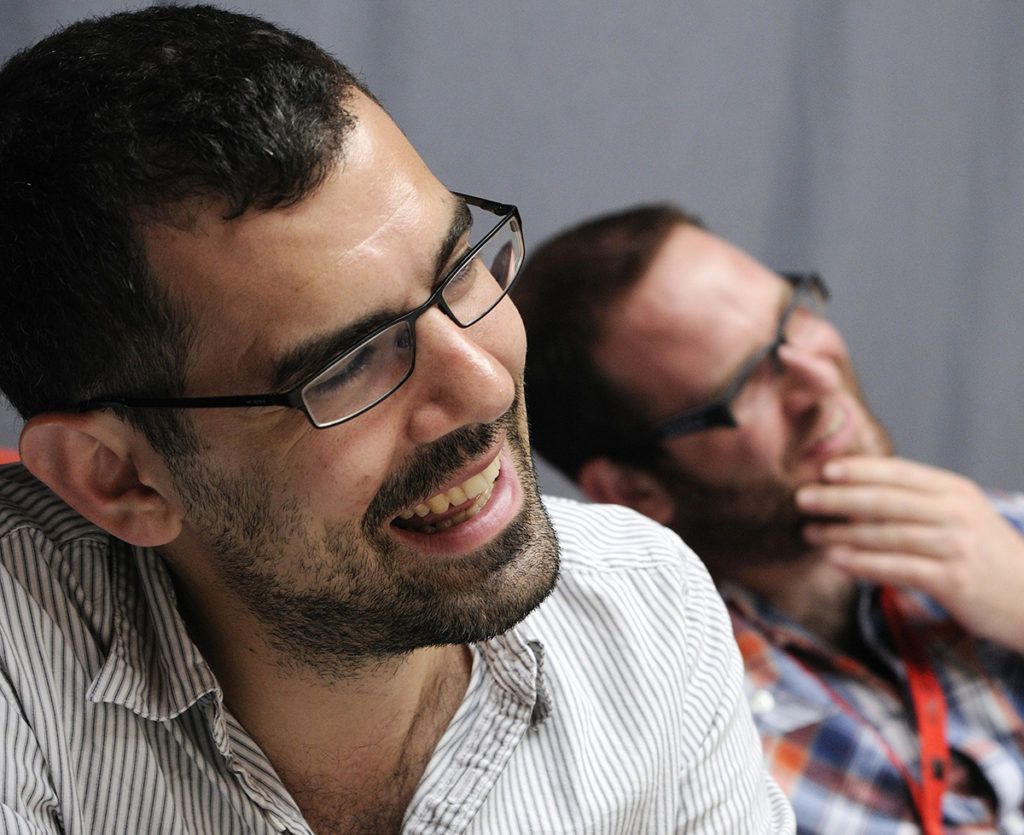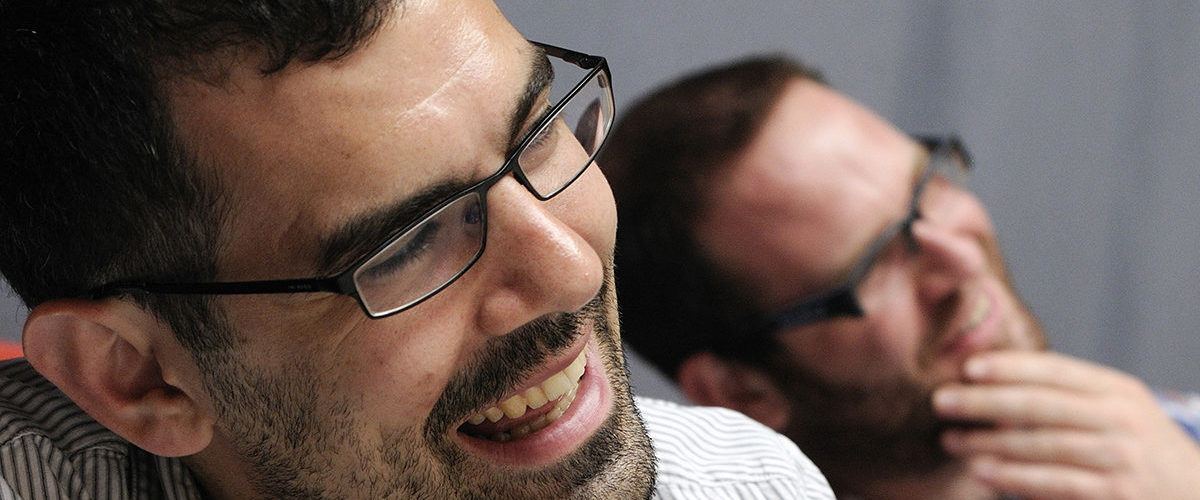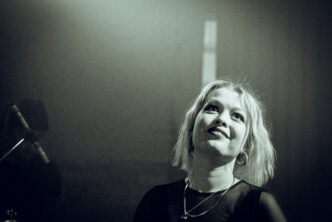Playwright Daniel Kanaber talks to Carmel Thomason about his new play Under Three Moons, produced by Manchester Theatre Company Box of Tricks and written after a terrifyingly macho stag-do:
Without giving away any spoilers, what is the story of Under Three Moons?
Daniel: “Broadly speaking it’s the story of a friendship, following two kids through their adulthood and into fatherhood. The play spans thirty years but is set over just three nights, the three nights they share a bed; a school excursion, a surfing trip, a Christmas holiday. But it’s not so much the story of what happens to them as how their relationships changes and how that change affects them”.

What inspired you to write a play about male friendship and specifically male mental health?
Daniel: “A few things happened all at once. Some serious, some not so much. I became a father, two friends had what they described as mental health episodes and I went on a terrifyingly macho stag-do. To be honest the first two events probably just got me thinking and discussing the ideas that later went into the play, but it was the stag do that formed the idea for me, seeing all these decades old friendships butt up against each other, it was funny and stupid and sweet and all a bit much all at once”.
Masculinity is a very broad term – how have you interpreted it in this play?
Daniel: “I was focusing more on the expectations of some men and the expectations that are made of them than on any theory of maleness. If I ever wrote about how I perceive masculinity it quickly began feeling like Under Three Moons the Ted talk more than a play. And no one wants to see that. Though I suppose the focus on the character’s expectations is how this play approaches masculinity, looking at the gap between how men perceive themselves and how they feel they’re perceived, and how they try and deal with that gap”.
What are the characters like?
Daniel: “I’ve seen lots of plays I really like by authors I adore writing the big male plays. But in most all of them the characters are cruel or conniving or craven. The one thing I wanted is for these guys to be well meaning, even when they’re spectacularly wrong, they want to be decent. They’re also emotionally inarticulate. They have the words to express themselves, and sometimes the compulsion to do so, but not necessarily the understanding of their own feelings to know what they want or need to share. Aside from that I think they’re also a little funny”.
Did you draw on your own life when creating the characters, and if so in what way?
Daniel: “Not really. I’m not really worth writing a play about. So I wrote about people I find much more interesting than myself. I did steal certain traits or ways of speaking from some friends and acquaintances but only to flesh the characters out. Both of the men are very much themselves and came about from just writing and writing and writing these voices till they became clearer”.

Are you involved in the casting of your plays?
Daniel: “Not always. But I have been this time and it’s been great. I can’t lie, it’s just fun seeing all these fantastic actors reading your stuff and making it sound better than what you’ve written, but particularly with this play it’s also genuinely invaluable. The play’s not a plot heavy genre piece, it’s all about the feel of the relationship, so seeing how the actors read together key. Everyone I saw was great, but one of the reasons I’m so excited to get into rehearsals is to see Darren and Kyle work. As soon as we saw them read together it felt real and alive. Though I think that was pretty obvious to everyone in the room so maybe I’m wrong and I didn’t need to be there at all. Still, I’m glad I was”.
If you could influence people’s views on male mental health, what would be one thing you would change?
Daniel: “The most important thing, the oft quoted truism, is we need to remove the stigma from mental health. It’s okay to be struggling, it’s alright to ask for help, coping and being strong is not a panacea, things only get better when we start talking to someone. The shame and guilt about initially admitting you need care is the most unhelpful difficult first hurdle. I think people often revert to that truism because mental health isn’t like other kinds of health. After that it’s very hard to give one uniformly useful piece of advice to sufferers. One person’s grief is rarely like another person’s, depression can be different for anyone. Which is partly why finding help can feel so hard a process to start”.
Why does the play have an age recommendation of 14 plus?
Daniel: “There’s some adult language. And some adult subjects touched upon. Nothing too traumatising is staged but perhaps the play might raise conversations afterwards that some parents won’t want to have with their children if they’re much younger than 14 or so”.
What do you want people to leave the theatre thinking about?
Daniel: “It feels odd to say this having talked about mental health so much, but I hope people leave having had a really fun night out. It’s a fun play, honest. But I guess I’d also want them to think about the people in their life to whom they need to reach out, either to ask for or to offer help. It’s ultimately a play about intimacy so I suppose so I’d want people to feel closer, or at least want to feel closer, to the people that matter to them”.
Is there anything else you’d like to say about the play?
Daniel: “If it sounds up your street, come see it, you’ll love it. If it doesn’t sound like your cup of tea, it’s nothing like what I’ve made it sound like, come and see it anyway, you’ll still love it”.
Under Three Moons produced by Box of Tricks opens at The Lowry, Salford Quays from the 24-28 September 2019 and then tours until the 2 November 2019.
“He doesn’t want an audience to get too comfortable” – interview with Michael Cabot, Artistic Director of London Classic Theatre.





